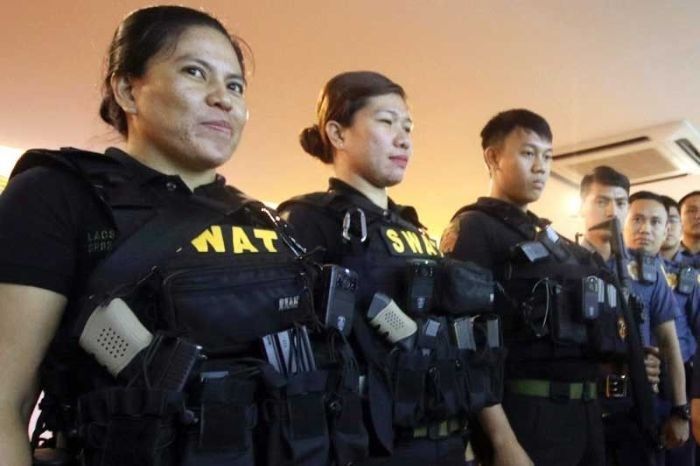Watchdogs laud SC bodycam rules but wary of possible gaps

MANILA, Philippines — Rights monitors on Monday welcomed the Supreme Court's rules on the use of the Philippine National Police's newly-acquisitioned body-worn cameras.
To recall, the official rules now require law enforcers to wear at least two body cameras in the implementation of search and arrest warrants. Police leadership has expressed hope that this will lessen cases of abuse and keep cops accountable.
In a statement, the Commission on Human Rights called the acquisition and new rules a "step in the right direction" but urged the national police to be aware of the newfound ramifications and challenges they would bring.
"Alongside the potential benefits of body-worn cameras, law enforcement must remain mindful of the future challenges, especially on data management and privacy concerns, involving the use of the technology as this has been an unexplored area in our law enforcement and criminal justice system," CHR spokesperson Jacqueline de Guia said.
The CHR added that it would study the matter and adjust its own policies according to the Supreme Court guidelines to better investigate cases of human rights violations.
READ: PNP launches info drive on new SC rules on body cams
De Guia also said the commission looks forward to "improvements in training and organization policies related to the use of body-worn cameras," as it calls for "partnerships and donations by the PNP so that more police operations may benefit from this innovation and close gaps in its implementation."
"We have high hopes that this newly introduced technology to law enforcement and criminal justice system will result in better transparency and accountability, and thus may improve public’s trust in law enforcement legitimacy," she said.
"Likewise, we push for the use of body-worn cameras as a preventive measure to reduce lethal force during police operations; to achieve improved resolution of complaints; and more effective evidence in a judicial proceeding."
Rights group 'mindful' of gaps, loopholes
The rules came amid mounting calls for safeguards on rules they claimed have been weaponized against dissenters and activists.
In a separate statement, rights watchdog Karapatan expressed wariness of what it said were "loopholes which may potentially be used by law enforcement officers in the course of implementation."
"We lament that such action came after numerous cases of killings, arbitrary arrests and detention and other rights violations in the government’s war on drugs and counterinsurgency campaigns," Karapatan said.
"We note that several proposals of lawyers and human rights groups have been considered in the resolution, though we remain vigilant and mindful of the gaps and loopholes which may potentially be used by law enforcement officers in the course of implementation."
The rights group pointed to unaddressed concerns by rights groups amid the promulgation and implementation of the bodycam rules, particularly accountability for those involved in past cases that did not have the benefit of bodycam footage as evidence of police abuse in court.
It called on the High Court to "provide feedback on the questions regarding trumped-up charges against activists in courts violating their right to due process and proposals for the amendments of the rules on the writs of amparo, habeas data, and habeas corpus to ensure the protection of those facing threats from State actors."
"All cases wherein there are serious questions on the use of search warrants against individuals including activists resulting in killings, arbitrary arrests and detention, and other rights violations [should] be subjected to immediate and urgent review and to pave the way for the releases of those who were subjected to wrongful actions," Karapatan urged.
Outside of high-profile cases, PNP leadership has dodged criticisms on instances of abuse and has stood by his agency's arrests and killings of progressives.
Police Gen. Guillermo Eleazar in earlier statements has gone as far as implying that the targeting of activists and government critics in many of its operations is mere coincidence.
- Latest
- Trending





























